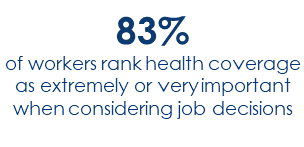Health
“’Short’ Falls: Who’s Most Likely to Come up Short in Retirement, and When?” and “Consumer Engagement Among HSA and HRA Enrollees: Findings from the 2013 EBRI/Greenwald & Associates Consumer Engagement in Health Care Survey”
“Short” Falls: Will Baby Boomers and Gen Xers have enough money to live on when they retire, and if not, when will they run short? New modeling by EBRI finds that those in the lowest-income brackets are most likely to run short, many in the first year of retirement. But some in all income brackets—including the highest—may also run short at some point during their retirement.
HSA/HRA Consumer Engagement: Which type of health plan is more likely to get workers involved in their own health care: Health savings accounts or health reimbursement arrangements? The two account-based types of health insurance are similar, but a new report from EBRI finds that people with HSAs are more likely to engage in cost-conscious behavior related to use of health care services than are those in HRA.
HSA Balances, Contributions, Distributions, and Other Vital Statistics—A First Look at Data from the EBRI HSA Database on the 10th Anniversary of the HSA
“Trends in Health Coverage for Part-Time Workers, 1999–2012,” and “Take it or Leave it? The Disposition of DC Accounts: Who Rolls Over into an IRA? Who Leaves Money in the Plan and Who Withdraws Cash?”
Part-time Workers: Are concerns about the requirements of the new federal health insurance law causing more employers to shift to part-time workers? A new report by EBRI finds there is no definitive answer to that question yet—but notes that a shift to part-time employment was underway before the law was passed and that future trends are likely to depend more on factors such as the economy and unemployment rates. Press release.
DC Accounts: When workers leave or change jobs, what do they do with their old 401(k)? New research from EBRI finds that it largely depends on whether they retire or stay in the work force: Those who retire tend to take the money, while those who keep working most often leave it in their previous employer’s retirement plan. Press release.
'Characteristics of the Population With Consumer-Driven and High-Deductible Health Plans, 2005–2013,' and 'Labor-force Participation Rates of the Population Ages 55 and Older, 2013'
Consumer-Driven Health Plans: Compared with those in traditional health plans, those in so-called "consumer-driven" health plans tend to have higher income, more education, and be in better health, according to a new report by EBRI. Press release.
Labor-force Participation: Older workers—those 55 and older—are a growing presence in the American work force, a trend driven mainly by women, according to a new report by EBRI. Press release.



